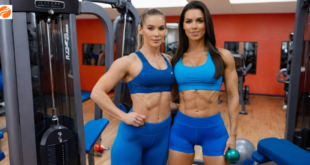
Losing fat while building lean muscle requires a careful balance of diet, exercise, and proper nutrition. Protein plays a critical role in this process, helping to preserve muscle while promoting fat loss. For anyone looking to achieve these goals, understanding how to structure your diet and focusing on essential nutrients like protein is key to success. In this blog, we’ll dive into effective diet tips that support fat loss and muscle gain, highlighting why protein intake is crucial for reaching your fitness targets.
Table of Contents
1. The Importance of Protein in Fat Loss and Muscle Building
One of the most important elements in any fat loss and muscle-building journey is protein. The focus keyword, “lose fat and build lean muscle,” is central to understanding how protein influences both of these goals. Protein supports muscle recovery and growth after exercise while also helping your body burn fat more effectively.
Why Protein Matters:
- Muscle Preservation: During fat loss, it’s common for the body to break down muscle along with fat. Adequate protein intake helps preserve muscle mass while shedding fat.
- Boosts Metabolism: Protein has a higher thermic effect than fats and carbohydrates, meaning your body burns more calories digesting and metabolizing it.
- Satiety and Hunger Control: Eating enough protein helps you feel full for longer, reducing overall calorie intake and aiding in fat loss.
Consuming 1.6 to 2.2 grams of protein per kilogram of body weight is recommended for those aiming to lose fat and build lean muscle.
2. Balanced Macronutrients for Fat Loss and Muscle Gain
While protein is vital, a well-balanced diet with the right ratio of macronutrients—carbohydrates, fats, and proteins—is equally important when you’re trying to lose fat and build lean muscle. Each macronutrient plays a role in supporting energy levels, recovery, and overall health.
Macronutrient Breakdown:
- Carbohydrates: Despite misconceptions, carbs are essential for fueling workouts. They provide the necessary energy for strength training and high-intensity exercise, which are key for building lean muscle. Opt for complex carbs like whole grains, oats, sweet potatoes, and vegetables to maintain steady energy levels without excess fat gain.
- Fats: Healthy fats, such as those from avocados, nuts, seeds, and olive oil, are crucial for hormone production and maintaining overall health. Fats also provide energy, especially for longer workout sessions.
- Protein: Protein is essential not only for muscle repair and growth but also for helping the body lose fat efficiently. Include lean sources of protein like chicken, fish, eggs, tofu, and legumes in your meals.
3. Caloric Deficit for Fat Loss
To lose fat, you need to create a caloric deficit—this means burning more calories than you consume. However, when your goal is to build lean muscle at the same time, you need to balance this deficit carefully to avoid muscle loss.
Creating the Right Caloric Deficit:
- Moderate Deficit: Aim for a slight calorie deficit of about 10-20% below your maintenance calories. This allows you to burn fat without drastically impacting muscle mass.
- Track Your Progress: Use a food diary or an app to monitor your calorie intake and ensure you’re meeting your protein goals while maintaining a moderate deficit. This balance is key to losing fat while building muscle.
- Adjust Based on Results: As you lose fat and build lean muscle, you may need to adjust your caloric intake based on your changing body composition and energy needs.
4. Strength Training for Muscle Growth
In addition to diet, exercise—especially strength training—is crucial to building lean muscle and losing fat. Strength training helps maintain muscle mass during fat loss and encourages the growth of new muscle tissue.
also read Top Natural Remedies for Digestive Health
Best Exercises for Building Lean Muscle:
- Compound Movements: Focus on compound exercises like squats, deadlifts, bench presses, and rows. These movements engage multiple muscle groups and promote muscle growth.
- Progressive Overload: Gradually increase the weight or resistance in your workouts to challenge your muscles and stimulate growth.
- Consistency: Aim for at least three strength-training sessions per week, targeting all major muscle groups. Regular exercise ensures that your body uses the protein and calories you consume to build muscle, not store fat.
5. Incorporating Cardiovascular Exercise
Cardio can be beneficial for fat loss, but it’s important to strike the right balance when trying to lose fat and build lean muscle. Excessive cardio can lead to muscle loss if not paired with strength training and adequate protein intake.
Cardio Tips for Fat Loss:
- Moderate Intensity: Engage in moderate-intensity cardio, such as brisk walking, cycling, or swimming, for 20-30 minutes a few times a week. This can help burn extra calories without sacrificing muscle mass.
- HIIT (High-Intensity Interval Training): HIIT is an effective way to burn fat without losing muscle. It involves short bursts of intense exercise followed by rest periods, which keeps your metabolism high and preserves muscle mass.
- Avoid Overdoing Cardio: Too much cardio can hinder muscle growth. Focus on quality over quantity and prioritize strength training.
6. Timing Your Meals for Optimal Results
Meal timing can influence how your body uses nutrients for fat loss and muscle building. While there’s no one-size-fits-all approach, some strategies can help optimize your results.
Meal Timing Tips:
- Pre-Workout Nutrition: Eat a meal or snack that includes carbohydrates and protein about 1-2 hours before your workout to fuel your exercise and improve performance.
- Post-Workout Recovery: After strength training, consume a meal rich in protein and carbohydrates within 30-60 minutes to support muscle recovery and replenish glycogen stores.
- Frequent Meals: Eating smaller, balanced meals throughout the day can help stabilize blood sugar levels, prevent overeating, and keep your metabolism active.
7. Supplements to Support Fat Loss and Muscle Growth
While a balanced diet should provide most of the nutrients you need, certain supplements can aid in fat loss and muscle building.
Key Supplements to Consider:
- Protein Powder: If you’re struggling to meet your daily protein goals through whole foods, a high-quality protein powder (like whey or plant-based options) can help you stay on track.
- Creatine: Creatine supports muscle growth and improves strength during high-intensity workouts. It can also help you maintain lean muscle mass while in a caloric deficit.
- Branched-Chain Amino Acids (BCAAs): BCAAs may help reduce muscle soreness, prevent muscle breakdown, and promote muscle repair, making them beneficial when aiming to lose fat and build lean muscle.
8. Staying Consistent and Patient
Achieving your goals to lose fat and build lean muscle takes time and dedication. While rapid results are tempting, sustainable fat loss and muscle growth require consistency in both diet and exercise.
How to Stay on Track:
- Set Realistic Goals: Aim for gradual progress rather than quick fixes. Healthy fat loss typically ranges from 0.5 to 1 kilogram per week, while muscle growth can be slower but steady with the right approach.
- Track Your Progress: Take photos, measure your body composition, and track strength improvements to see how your body is changing over time. This can keep you motivated, even when the scale isn’t moving as quickly as you’d like.
- Adjust as Needed: Listen to your body and make adjustments to your diet or exercise routine as needed. If you’re not seeing progress, it may be time to reassess your calorie intake, workout intensity, or protein consumption.
Conclusion: Balance is Key to Losing Fat and Building Lean Muscle
To effectively lose fat and build lean muscle, focus on a balanced approach that prioritizes protein intake, strength training, and moderate cardio. By understanding the importance of nutrition, creating a slight caloric deficit, and staying consistent with your workouts, you can achieve sustainable results. Remember, success doesn’t happen overnight, but with dedication and the right strategies, you’ll reach your fitness goals.
click here for more info
FAQs
1. Why is protein essential for losing fat and building lean muscle?
Protein is crucial because it helps preserve muscle mass during fat loss and promotes muscle growth. It also boosts metabolism and keeps you feeling full longer.
2. How much protein should I eat to lose fat and build lean muscle?
Aim to consume between 1.6 to 2.2 grams of protein per kilogram of body weight daily to support fat loss and muscle gain.
3. Can I lose fat and build muscle at the same time?
Yes, with the right combination of diet and exercise, it’s possible to lose fat while building lean muscle. Focus on strength training, eating enough protein, and maintaining a slight caloric deficit.
 Health live a Healthy life
Health live a Healthy life







